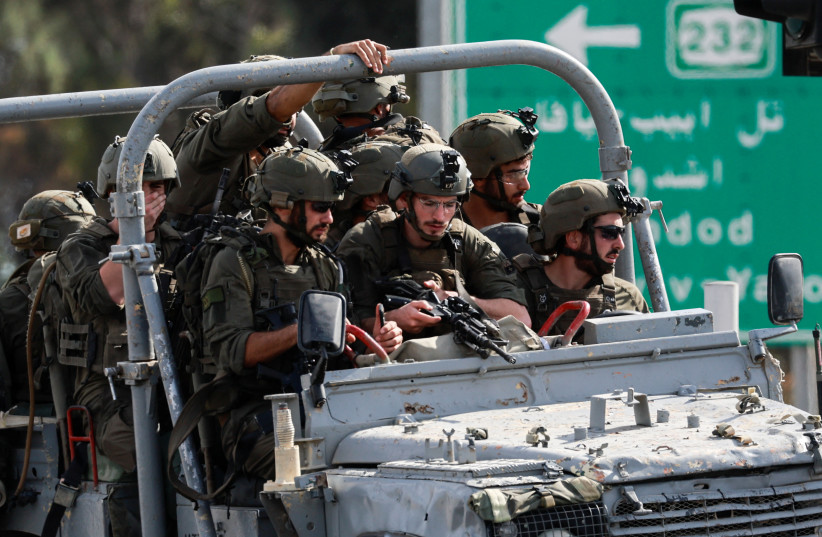In the days following Hamas’ shock attack on civilians in the South of Israel on Saturday — in which terrorists slaughtered over 1,300 children, infants, and men and women of all ages, kidnapping tens more — dozens of grassroots initiatives have risen to collect donations and distribute food, army equipment, and supplies to the IDF and the 300,000 reservists that it called into duty.
Meanwhile, rather than discussing how they would alter plans to finance the monetary and equipment needs demanded by the ongoing war declared against Hamas, officials in the government met in order to deal with bureaucracy designed to increase yeshiva budgets and the distribution of coalition funds during the critical first days of the war.
A severe priority issue
Several organizations have demanded the government reevaluate where it’s putting Israel’s money. On Tuesday, the Federation of the Israeli Chambers of Commerce held an emergency meeting to discuss the matter.
"We are proposing to the government a change in the order of budgetary priorities,” stated the federation’s president, Uriel Lynn, Proposing that the government focus on “Transferring budgets to the IDF and the defense efforts, placing the defense of the Gaza Strip as the first budgetary goal, reducing government ministry [budgets], and freezing decisions on transferring sectoral budgets.”

As well, the Alliance of Academics for Israel Democracy, a grassroots group of around 10,000 academics from every university in Israel, put forth a scalding criticism of the government’s flawed priorities.
“The Alliance stands shocked before the efforts of the Education and Finance Ministries to transfer funds to yeshiva students and compensate them retroactively, while IDF fighters are raising funds from private donations to purchase combat equipment and food,” read a statement circulated en masse via Whatsapp.
“We call on the appointed ministers, Yoav Kisch and Bezalel Smotrich, to immediately stop this despicable move that illustrates even more the extent of the government's disconnection from a struggling Israel,” it continued, noting that “The robbery of the public purse under the auspices of the war is an act that should not be done and must stop immediately.”
A representative of the Association, Tel Aviv University’s Professor Yossi Spiegel, elaborated on the group’s disdain for the government’s actions at the outset of the crisis. “While everybody was in shock, everybody was mourning the grave losses, we came to realize that the ministries are doing business as usual, and allocating funds to all sorts of questionable causes,” he told the Jerusalem Post.
Spiegel, who acts as president of the Israeli Economic Association and a member of the Economists Forum, further criticized the government’s continued insistence on funding yeshivas with State resources.
“In recent years, the government has invested more and more in education that does not include basic things like math and sciences,” he said. “How can you raise children without providing them with basic education that is required in an advanced economy?”
Everyone — even the banks — are pitching in
Whatsapp chats throughout the country are currently inundated with forwarded messages spreading the word of local efforts to lend a hand. Civilians are personally carrying supplies from army base to army base in their own personal vehicles, and pooling resources in order to feed and supply their children, spouses, and loved ones who have been called into duty.
“My unit needs your help,” reads one such call for aid. “I'm a mechanic for tanks and APCs and we don't have enough tools, we're on the border of Gaza and we can't fix equipment fast enough. We need 2 sets each of cordless impact drills, cordless angle grinders/disks, and socket wrench sets. If you can help drop me a line”
The Israeli hi-tech sector is working to do its part, with companies opening their office doors to displaced southerners and those donating equipment to be carried to the front lines of the ongoing conflict.
Even the Israeli banking system has come together to provide support and assistance to residents of the Gaza Strip, reservists, soldiers, and volunteers. The banks have established dedicated assistance centers and helplines to address various needs, with their efforts extending as long as the current security situation persists.
The nation’s banks are offering a variety of support measures, including loan repayment freezes or deferments, mortgage payment freezes, increased credit limits, bridging loans, interest-free and fee-free unique loans for Gaza Strip residents, deferral or cost-free installments of credit card charges, and freezes on debt collection processes during the current period.
The banks’ efforts also include financial support for southern hospitals, direct aid to organizations involved in medical treatment and life-saving efforts, support for organizations providing psychological assistance, procurement of basic equipment for IDF soldiers, purchase of food, clothing, and various supplies for Gaza strip residents, emergency equipment for Home Front Command teams, defense gear for combatants, and packaging of meals for soldiers and civilians in the south, with the assistance of bank employees.
